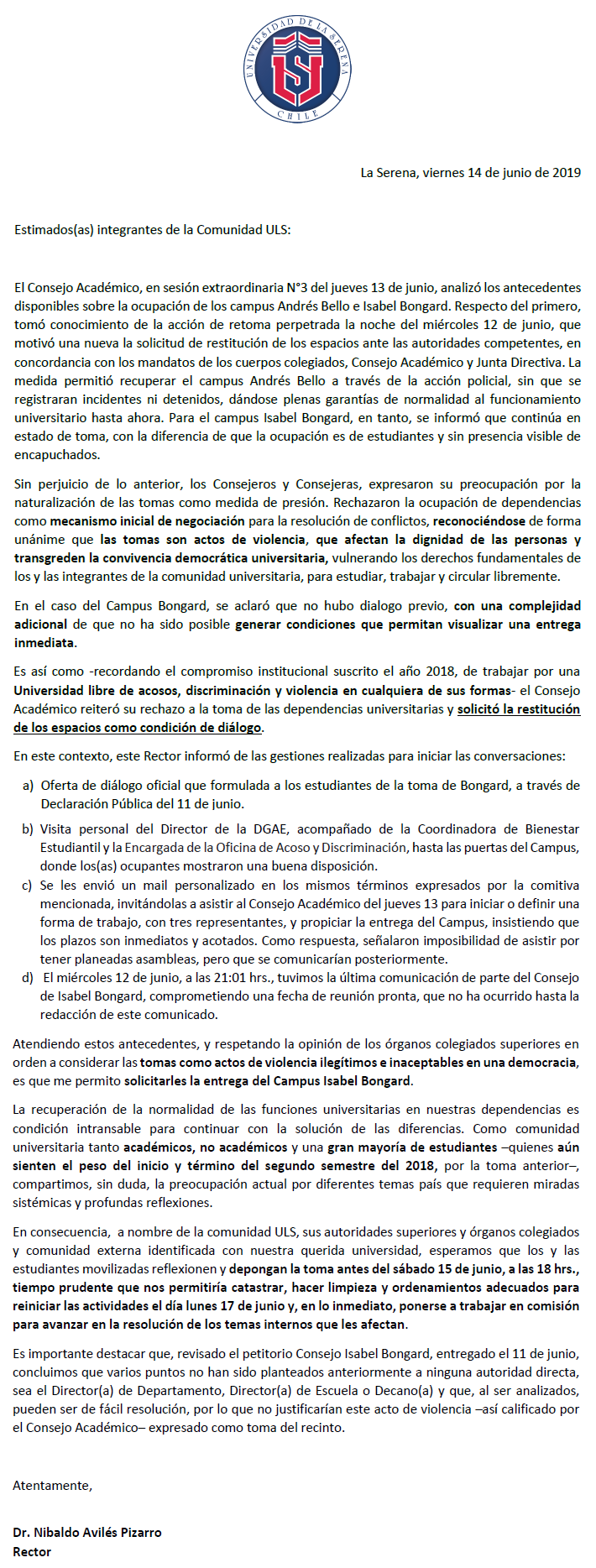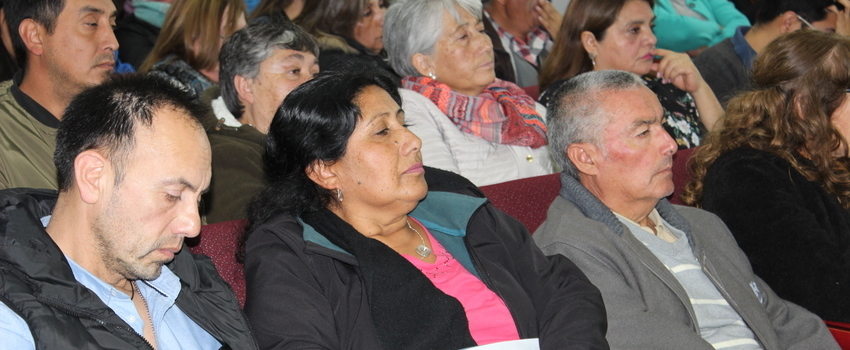
The seminar sought to explain what the fundamental rights of water are and allowed a direct dialogue with key actors in the rural sector of the Coquimbo Region.
With the presence of Senator Adriana Muñoz, the Rector of the University of La Serena, Dr. Nibaldo Avilés, the former Director General of Water, Carlos Estévez, the Executive Director of the Sustainable Chile Program, Sara Larraín Ruiz-Tagle, the leader of the National Federation of Rural Drinking Water, Marcos Landeros, university authorities, neighborhood leaders and water associations of the Coquimbo Region, students and guests, the Seminar “Human Right to Water:” was held at the University of La Serena. A democratic demand for Chile.”
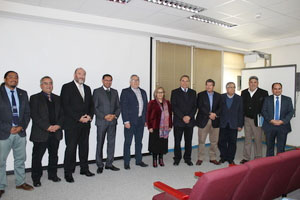 To meet convened by the Rectory and Senator Muñoz, Leaders from different APRs in the region attended and the purpose was to activate dialogue regarding the rights that residents have to the use of rural drinking water, as well as the mechanisms with which they can confront in order to protect this natural resource, which due to Due to different factors, it has been decreasing and detrimental to the population in general.
To meet convened by the Rectory and Senator Muñoz, Leaders from different APRs in the region attended and the purpose was to activate dialogue regarding the rights that residents have to the use of rural drinking water, as well as the mechanisms with which they can confront in order to protect this natural resource, which due to Due to different factors, it has been decreasing and detrimental to the population in general.
Throughout the country there are more than 1.500 services administered under the figure of committees and cooperatives, which have the task of safeguarding this natural resource so that it reaches the affiliated families, and there are more than 7 thousand neighborhood leaders who help in this process. .
For the Senator and member of the Special Commission on Water Resources, Desertification and Drought of the Senate, Adriana Muñoz, this type of seminars and spaces to be with those who know the subject in situ from their territories, is of vital importance so that decision makers decisions can do their job.
The authority thanked the ULS for providing a space for conversation and discussion about water, “having the willingness to make this link between citizens, rural drinking water organizations of all the communes of Elqui, including Combarbalá, Ovalle and people who have been linked to the water problem in their territories for some time, and also with government, university and academic authorities. For us, as decision makers, it is very important to bring them all together, because this is how we understand and reach a common diagnosis, and take charge of the crisis that the scarcity of water for human consumption is causing in the territories."
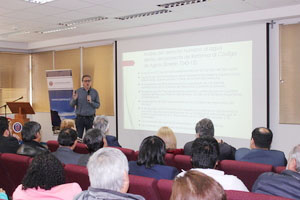 The Rector of the University of La Serena, Dr. Nibaldo Avilés, valued the call and highlighted that “in particular, our Coquimbo Region has suffered in recent years great impacts due to drought in the agricultural field and social impact on the drinkability of this. It is our mission to anticipate greater difficulties and we must combine scientific knowledge with public policies for a common benefit, being emphatic that we must do something now and do it well, because if it is not done, our next generations will be the ones who will suffer.”
The Rector of the University of La Serena, Dr. Nibaldo Avilés, valued the call and highlighted that “in particular, our Coquimbo Region has suffered in recent years great impacts due to drought in the agricultural field and social impact on the drinkability of this. It is our mission to anticipate greater difficulties and we must combine scientific knowledge with public policies for a common benefit, being emphatic that we must do something now and do it well, because if it is not done, our next generations will be the ones who will suffer.”
The university authority concluded with the premise that the University, being the only state one in the Coquimbo Region, has a commitment to the territory, from the academic and training role, strengthening and promoting research, thus becoming an educational agent in the society. “Our institution is characterized by being a Complex University, and in it different curricular programs for undergraduate, diploma and doctoral programs have been developed, elementary guidelines that allow us to train socially and environmentally responsible professionals with the ideal knowledge to face the challenges that we face. The demands for transverse water purification define us today,” he expressed.
During the meeting, the former Director General of Water, Carlos Estévez, presented: “Human Right to Water in the Water Code Reform Bill”, and the Executive Director of the Sustainable Chile Program, Sara Larraín Ruiz-Tagle, who referred to “Water in Chile: Between Human Rights and Market Rules.” The latter, the main promoter of the defense of the environment and sustainability in Chile, belongs to and director of the Sustainable Chile Program, an initiative of environmental organizations, activists committed to changing certain paradigms in relation to the environment.
“It is important that this type of meeting be more frequent and that representatives from all areas can be present, know the challenges of public policies, achieving a balance to be able to reach agreements. The University should take an active role in opening spaces, delivering experiences and knowledge to the population and at the same time they should open the rooms so that the communities can enter to show their experiences and their territorial challenges,” said Larraín regarding the role of the universities. public regarding the issue of sustainability and water.
Written by Patricia Castro, DirCom
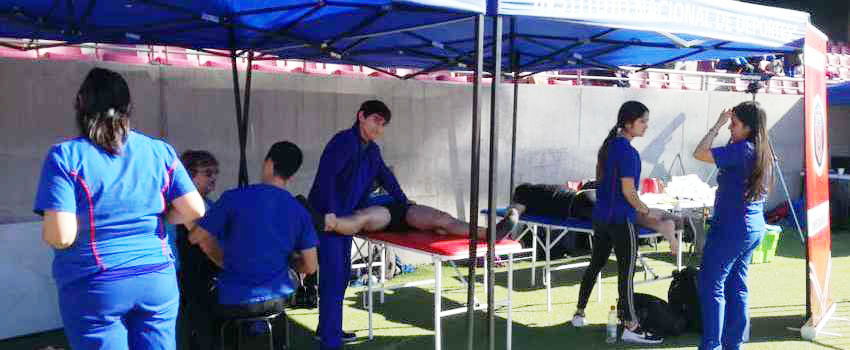
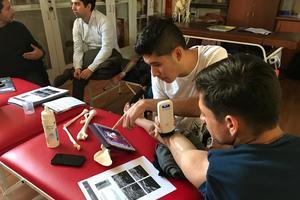 One of these instances was the "Master of Athletics", an activity held at the La Portada stadium in La Serena and in which students of the career and the Student Center participated, through a kinesic care stand for the contestants this competence.
One of these instances was the "Master of Athletics", an activity held at the La Portada stadium in La Serena and in which students of the career and the Student Center participated, through a kinesic care stand for the contestants this competence.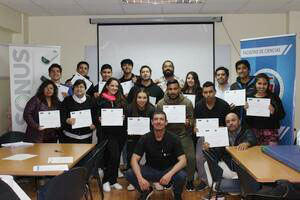 Together with the work with the community, the Kinesiology career seeks to complement and specialize the training of its students, graduates and professionals, implementing various professional training courses.
Together with the work with the community, the Kinesiology career seeks to complement and specialize the training of its students, graduates and professionals, implementing various professional training courses.
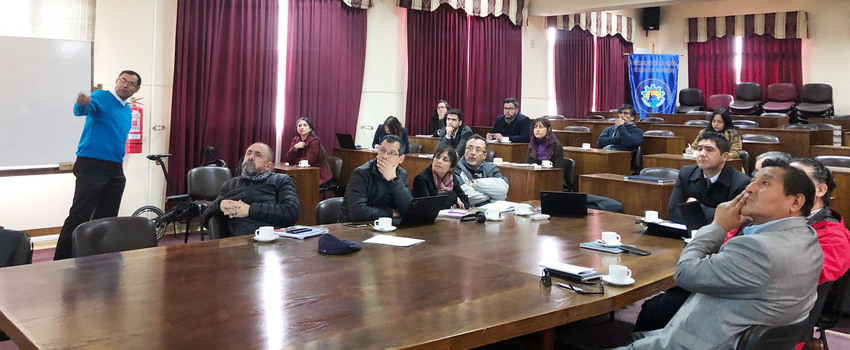
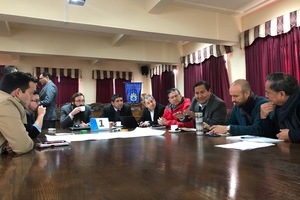 “I find it important, relevant and very hopeful, because it has allowed us to get to know each other and recognize ourselves in the task that the University is doing, as relevant actors in this process, since as members of the institution, because we are the ones who make it up and do it.” "We have the purpose of looking at how the University is linked to citizens," said Desiree López de Maturana, professor at the Faculty of Humanities.
“I find it important, relevant and very hopeful, because it has allowed us to get to know each other and recognize ourselves in the task that the University is doing, as relevant actors in this process, since as members of the institution, because we are the ones who make it up and do it.” "We have the purpose of looking at how the University is linked to citizens," said Desiree López de Maturana, professor at the Faculty of Humanities.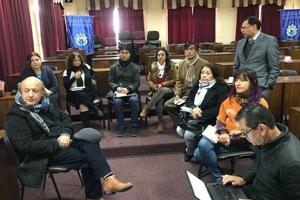 The plenary session set for this Wednesday, June 19, will allow us to know the progress of each of the subcommittees regarding this process, which will allow us to carry out a work plan, promoting interaction and dialogue between attendees.
The plenary session set for this Wednesday, June 19, will allow us to know the progress of each of the subcommittees regarding this process, which will allow us to carry out a work plan, promoting interaction and dialogue between attendees.
 To meet
To meet  The Rector of the University of La Serena, Dr. Nibaldo Avilés, valued the call and highlighted that “in particular, our Coquimbo Region has suffered in recent years great impacts due to drought in the agricultural field and social impact on the drinkability of this. It is our mission to anticipate greater difficulties and we must combine scientific knowledge with public policies for a common benefit, being emphatic that we must do something now and do it well, because if it is not done, our next generations will be the ones who will suffer.”
The Rector of the University of La Serena, Dr. Nibaldo Avilés, valued the call and highlighted that “in particular, our Coquimbo Region has suffered in recent years great impacts due to drought in the agricultural field and social impact on the drinkability of this. It is our mission to anticipate greater difficulties and we must combine scientific knowledge with public policies for a common benefit, being emphatic that we must do something now and do it well, because if it is not done, our next generations will be the ones who will suffer.”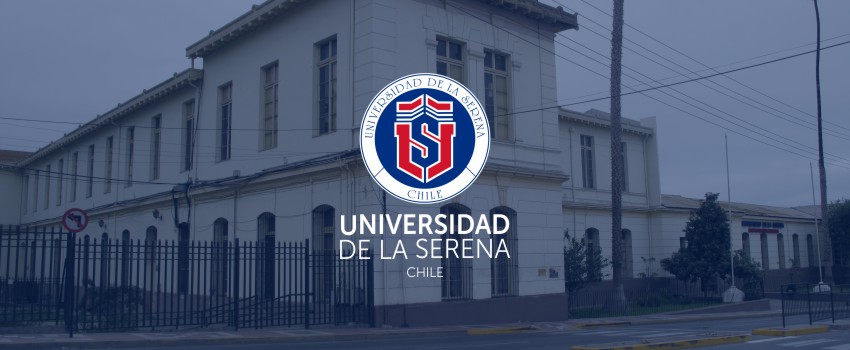
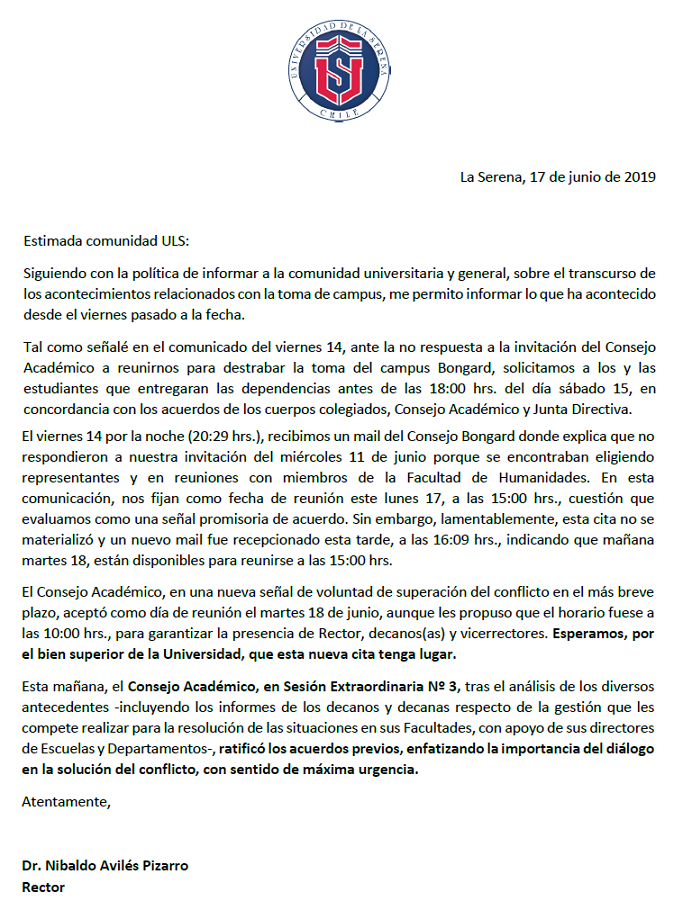
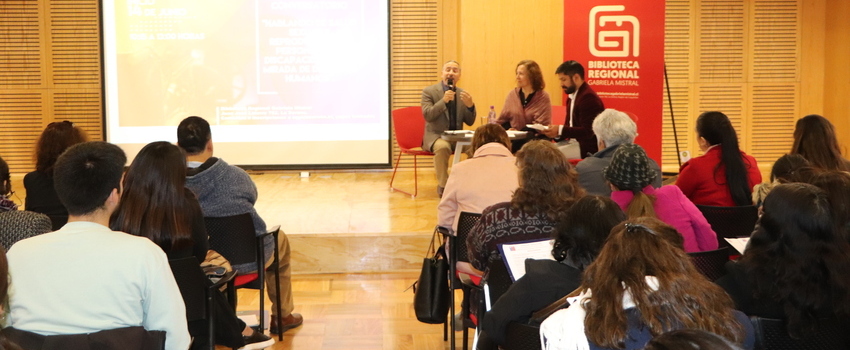
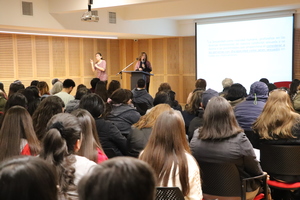 The activity included the participation of the Regional Director of SENADIS, Jorge Juárez, the Integrated Sexual Education team of the Universidad Católica del Norte and the academic from the University of Chile, Carolina Pérez, who spoke about the reality of the rights of life sexuality of people with disabilities, seeking to break existing myths on this topic.
The activity included the participation of the Regional Director of SENADIS, Jorge Juárez, the Integrated Sexual Education team of the Universidad Católica del Norte and the academic from the University of Chile, Carolina Pérez, who spoke about the reality of the rights of life sexuality of people with disabilities, seeking to break existing myths on this topic.
